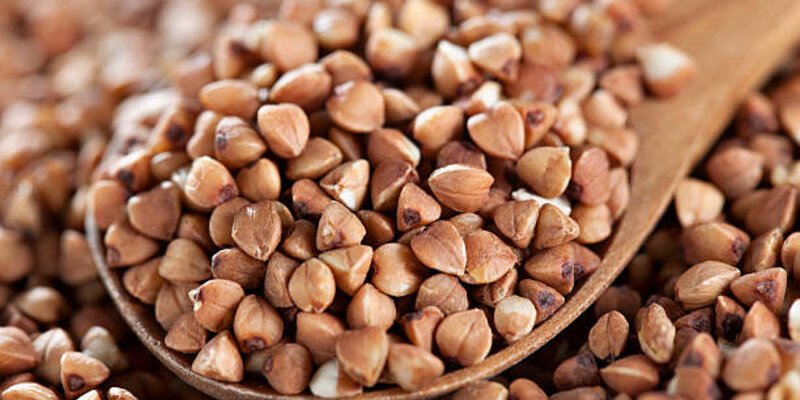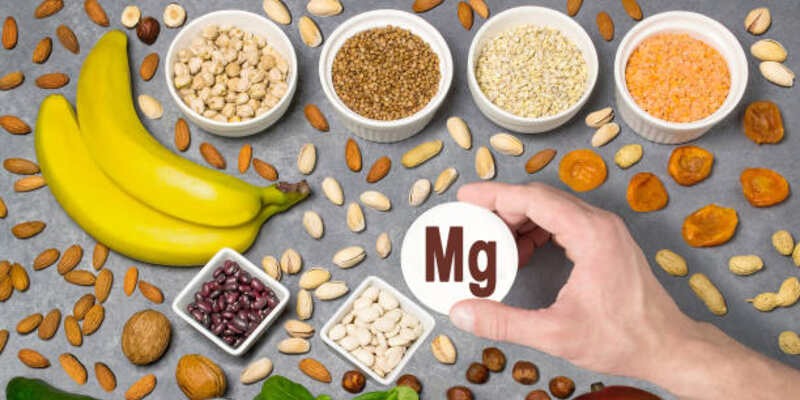Are you having difficulty maintaining a healthy thyroid? You’re not alone. An estimated 20 million Americans suffer from thyroid-related problems every year and the challenge of keeping our thyroids in order can be overwhelming. Fortunately, there are steps we can take to protect one of our body's most important organs - starting with diet! In this blog post, we will explore 10 dietary blunders that could be harming your thyroid health, along with ways to improve these habits for optimum well being. Don't miss out on this chance to ensure your long-term wellness through informed nutrition decisions today!
1. Not Getting Enough Iodine
Iodine is an essential mineral that plays a crucial role in the production of thyroid hormones. Our thyroids need iodine to function properly and not getting enough of it can lead to hypothyroidism, a condition where your thyroid isn't producing enough hormones. This lack of iodine can be due to not consuming enough iodine-rich foods such as seafood, eggs, dairy products, and iodized salt. To ensure you are meeting your daily recommended intake of iodine (150 micrograms for adults), consider incorporating more of these foods into your diet or speak with a healthcare professional about taking an iodine supplement.
2. Overconsumption of Gluten
Research has shown a strong connection between gluten intolerance and autoimmune thyroid diseases such as Hashimoto's thyroiditis. Gluten, a protein found in wheat, barley, and rye, can trigger an immune response that attacks the thyroid gland. This can lead to inflammation and damage to the gland over time. If you have a gluten sensitivity or are experiencing symptoms of thyroid problems, consider reducing your intake of gluten-containing foods.
3. Not Enough Selenium
Selenium is another important mineral for thyroid health as it helps convert T4, the inactive form of thyroid hormone, into T3, the active form. A deficiency in selenium can hinder this conversion process and lead to low levels of T3 and potentially hypothyroidism. Brazil nuts are a great source of selenium, with just two nuts providing your daily recommended intake. Other sources include fish, eggs, and whole grains.
4. Excessive Soy Consumption

Soy products contain compounds called goitrogens which can interfere with the production of thyroid hormones by blocking iodine absorption in the gland. Although soy is a good source of protein and other nutrients, it may be best to limit your consumption if you have an underactive thyroid or are at risk for thyroid disease.
5. Skipping Meals
Our thyroids require a steady supply of energy to function properly, and skipping meals can disrupt this balance. In addition, when we skip meals, our bodies go into "starvation mode" and slow down metabolism in an effort to conserve energy. This can further exacerbate thyroid problems, especially for those with an underactive thyroid. To maintain a healthy metabolism and support your thyroid, aim to eat regular meals throughout the day.
6. Not Enough Iron
Iron is essential for producing hemoglobin, a protein in red blood cells that carries oxygen to our cells. If we don't have enough iron, our bodies may not be able to produce enough hemoglobin, leading to anemia. Anemia can cause fatigue, weakness, and other symptoms that are commonly attributed to thyroid problems. Ensuring you have enough iron in your diet can help alleviate these symptoms and support proper thyroid function.
7. Excess Intake of Processed Foods
Processed foods are typically high in sodium, sugar, and unhealthy fats - all of which can negatively impact thyroid health. Excessive salt intake can hinder iodine absorption, while too much sugar and unhealthy fats can lead to inflammation in the body. Opt for whole, unprocessed foods as much as possible to support a healthy thyroid.
8. Low-Calorie Diets
Restricting calories and following low-calorie diets may seem like a quick way to lose weight, but they can be detrimental to thyroid health. Too few calories and nutrients can lead to nutrient deficiencies and slow down the production of thyroid hormones. If you are looking to lose weight, it's important to do so in a healthy and balanced way that supports your overall well-being.
9. Not Enough Vitamin D
Vitamin D is essential for thyroid health as it helps regulate the body's immune response. A deficiency in vitamin D has been linked to autoimmune thyroid diseases, such as Hashimoto's thyroiditis and Graves' disease. To ensure you are getting enough of this crucial nutrient, spend some time in the sun or consider taking a supplement.
10. Ignoring Food Sensitivities

Food sensitivities, unlike allergies, can be difficult to identify as they may not cause immediate reactions. However, consuming foods that you are sensitive to can lead to inflammation in the body and contribute to thyroid problems. Consider keeping a food diary or speaking with a healthcare professional about getting tested for food sensitivities if you suspect it might be impacting your thyroid health.
Conclusion:
Our thyroids play a vital role in our overall health, and it's important to take care of them through proper nutrition. By avoiding these 10 dietary blunders and making conscious choices about what we eat, we can support our thyroid function and promote long-term wellness. Remember to always consult with a healthcare professional before making any significant changes to your diet, especially if you have a pre-existing thyroid condition. Let's prioritize our health and make informed nutrition decisions to ensure optimal well-being for years to come. So, let's make a commitment today to take care of our thyroids through proper nutrition and set ourselves up for a healthy future. Your thyroid will thank you! Keep making mindful and nutritious food choices and reap the benefits of improved thyroid health. Let's start today! Stay healthy, stay happy!












